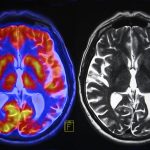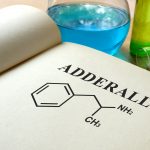Interview Author Ron Fritz & His Book About Depression
A Break in the Storm
About the Book and Author
Ron Fritz is a certified Master Addiction Counselor (MAC) with a master’s degree in psychology and more than ten years of experience working in the mental health field. He currently works for A Better Today Recovery Services as an addiction counselor. You can find his bio with A Better Today if you click here.
His new book, A Break in the Storm, discusses many different aspects of depression, including how closely intertwined addiction and depression are. The book tells Ron’s own story, suicidal ideology, how weather affects mental health, spirituality and depression, and more. We need more books that address addiction and depression.
As Fritz says, “the book is for people who suffer from depression. I had no one to turn to, so the book is meant to help them learn about their own disorders. One out of every ten people in this country suffer from a diagnosable depression, so that equates to 33 million people suffering from depression.”
Q: Why did you decide to write this book? What was your inspiration?
I went through treatment thirty years ago for my addiction and when I was in treatment, no one talked about co-occurring disorders. I got out of treatment and I was okay for about six months, and then my depression came back. During my addiction, I had always ignored depression; I just drank it away. All of a sudden, I had this problem and all my tools had been taken away from me. My coping skill was alcohol. So, I sat down and started learning as much as I could about it.
I was seeing a therapist about six years ago, for my depression, and she suggested I do a project. I thought, how about I write a book about depression, I know a lot about it. That was how I got started and it just became my obsession.
Q: Aside from clinical work, you have a unique interest in writing. When did you first realize you wanted to be a writer?
Probably high school. I wasn’t very good at it at first, but I enjoyed it. I loved the idea of writing. I thought I had a lot of stories to tell, but I didn’t have the mechanics down. I wrote on and off for about ten years, still in my addiction then. As I got more and more into the addiction, I wrote less and less.
After I got clean and sober, I needed to come up with an alternative to drinking. I had all this time and I didn’t know what to do. I went back to writing because it had always been my love, my passion. I grew up in books, so to me books are like my religion. After a while, I was published in a few magazines and that gave me hope.
When I’m having bad thoughts, I turn to writing. It’s become my recovery tool.
Q: Do you have any writing quirks? What does your process look like?
I have to be alone, I can’t be disturbed. When I go into my mode, my space, I tell my wife I’m going in to write and I shut the door to my office and ask please don’t come in.
Q: Which part of the book was hardest to write?
Probably the religion chapter, because I had to do a lot of research on that. You know, how does a Buddhist look at it, how does a Muslim? That was taking me outside of my comfort zone, but I didn’t want to be biased. I wanted to give a fair impression from all the different spiritualities.
Within my own spirituality, I did a lot of research in the bible—in so far as who committed suicide in the bible (there are seven people) and how many people thought about it (there’s a lot). Moses once asked God to kill him.
Q: Can you tell us: where does depression come from?
Depression comes from our genes; clinical depression is highly hereditary. There are two kinds of depression; there is clinical depression and then environmental or situational depression. Your dog dies and then you get depressed; that is situational depression. However, if you mom suffers from depression and your sister and your grandmother suffer from depression, it’s hereditary.
Now what that looks like is you’re born with an insufficient amount of serotonin, a chemical inside of our brain, a neurotransmitter. When you are born with an insufficient amount, you don’t function like everyone else. You don’t feel like you belong, so you look for ways to increase your serotonin to feel like you belong again. Antidepressants increase your level of serotonin. So does alcohol.
That’s why so many alcoholics suffer from depression. In fact, studies show that 50% of all alcoholics suffer from major depressive disorder.
Q: Would you say that most people with addiction and depression have clinical depression?
Yes. Statically we know that 60-85% of all people who suffer from addiction also suffer from a mental health disorder. Like I said, just in alcoholics, half of them suffer from major depressive disorder.
My depression, I had before my alcoholism. The alcoholism was self-medication for my depression; it made me less depressed. The problem with co-occurring is you have the addiction people and the medical people. They don’t like to talk to each other, but with co-occurring, we’re stuck in the middle because we’re both.
Q: What in your personal opinion is the best treatment for depression? If it is circumstantial, is medication still the best route?
It can be, but the advantage to that is that when the situation changes, you don’t need the medication. Let’s say that for example you know that you lost someone very close to you and you go into a depression. That might last for six months, a year, two years. When you come out of the grief, you no longer have a need for medication.
However, if it’s biological, if it’s hereditary, you were born with not enough and you’ll never have enough—well then you need to be on medication for the rest of your life.
Q: If someone is medicated for depression, is it necessary to see a therapist? Or, is the medication an ends?
I think it’s a good idea. One of the things we know, both from addiction and from mental health fields, is that when we use medication therapy and psychotherapy together, we get a higher bang for our buck than if we only use one or the other.
We know that very well in addiction, that’s why we at ABT have Dr. Carlton and the medical staff and they are taking care of the physical addiction part and therapists are the mental health.
Q: Do you have a favorite book, from your childhood or now?
There are so many to choose from. One of my favorites in childhood is The Pushcart Wars. It’s a book for kids, and I really loved that book.
I’m very much into classical literature too. I like Kafka. I like Gertrude Stein and F. Scott Fitzgerald. My favorite author would be Kate Chopin, though. She was a feminist in the 1800s.
Q: Where can A Break in the Storm be bought?
It’s available through amazon.com and through other major providers like Barnes & Noble, online. There’s also kindle version of it on amazon.
If you are suffering from depression or addiction
There are many resources available for people struggling with co-occurring disorders, addiction and depression. To speak to someone about what you are going through and find some help, call (877)670-8451.





